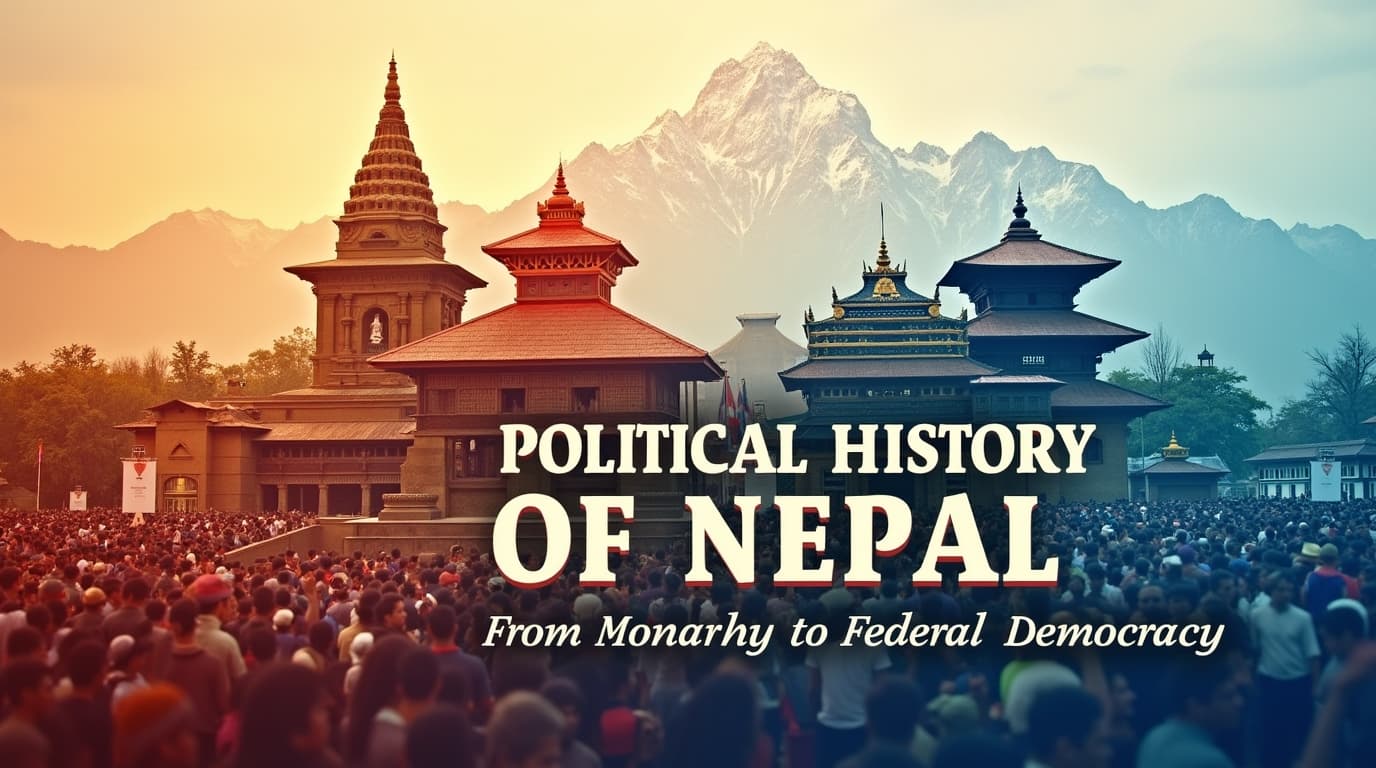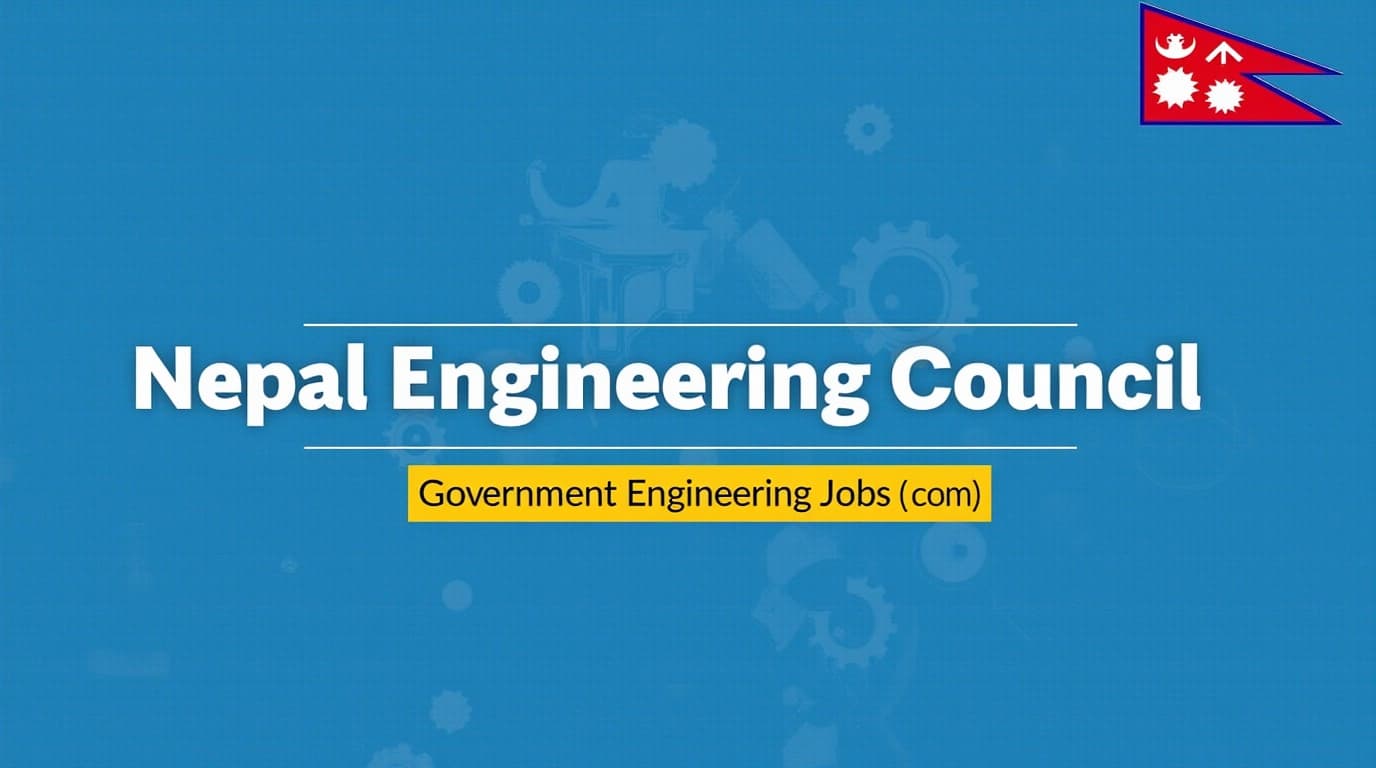Salary and Benefits of a DIG (Deputy Inspector General) of Nepal Police

The compensation package for a Deputy Inspector General (DIG) of Police in Nepal is structured to provide both a stable income and a range of supplementary benefits. While the basic salary for this senior rank has remained consistent over the past few fiscal years, the government has demonstrated a responsive approach to economic pressures, particularly inflation, by significantly adjusting allowances. This report details the current salary structure, comprehensive allowances, long-term financial security provisions, and non-monetary privileges extended to DIGs within both the Nepal Police and the Armed Police Force (APF). The overall framework underscores a commitment to attracting and retaining highly qualified individuals for these critical public safety roles, reflecting the prestige and stability inherent in government service in Nepal. The focus on flexible allowances rather than fundamental basic pay increases suggests a pragmatic fiscal policy, allowing the government to address immediate economic concerns without committing to permanent, compounding increases in base pay, which would have greater long-term budgetary implications.
Introduction: The Role and Rank of a DIG in Nepal’s Police Forces
The Deputy Inspector General (DIG) occupies a pivotal senior leadership position within Nepal’s security apparatus, serving in both the Nepal Police and the Armed Police Force (APF). This rank is strategically placed directly below the Additional Inspector General (AIG) and the Inspector General (IGP), who functions as the supreme head of the respective police force. Individuals holding the rank of DIG are entrusted with substantial responsibilities, typically leading major departments within the Police Headquarters or overseeing provincial police commands. Their duties are fundamental to maintaining law and order, preventing and investigating crime, and managing the overall administrative and operational aspects of policing across the nation.
The process for recruitment and promotion to such gazetted positions, including those within the police forces, is rigorously managed by the Public Service Commission (Loksewa Aayog). Loksewa Aayog operates as an independent constitutional body, established with the explicit mandate to select meritorious candidates for various government posts, including the Nepal Police and Armed Police Force, through a system renowned for its fairness and transparency. This commitment to a merit-based selection process is a cornerstone of public trust in government appointments. The involvement of Loksewa Aayog ensures that individuals ascending to senior roles like DIG are chosen based purely on their qualifications and capabilities, rather than external influences, which significantly enhances the credibility and public confidence associated with the position. This structured and transparent pathway to senior leadership not only attracts highly competent individuals but also reinforces the stability and esteemed nature of a career in Nepal’s police forces.
Current Salary Structure (Fiscal Year 2082/83)
The financial remuneration for a Deputy Inspector General of Police in Nepal is a key component of the overall compensation package, reflecting the seniority and demanding nature of the role.
Basic Salary and Grade Progression
For the fiscal year 2082/83 (corresponding to 2025-26), the starting basic monthly salary for a Deputy Inspector General (DIG) of Police, applicable to both the Nepal Police and the Armed Police Force (APF), is NPR 53,000. Officers at the DIG rank are typically classified under Grade 3 within the government’s pay scale. This classification includes an annual grade rate increment of
NPR 1,767. Through this structured progression, a DIG’s basic salary can reach a maximum of
NPR 58,301 as they accumulate grade increments over their service tenure.

Dearness Allowance: Recent Adjustments and Impact
Despite the stability in basic salaries, a notable adjustment has been made to the monthly dearness allowance, also recognized as the cost-of-living allowance. For the current fiscal year 2082/83, this allowance has been significantly increased from NPR 2,000 to NPR 5,000 per month. This adjustment represents a substantial
NPR 3,000 monthly increase, specifically implemented to alleviate the financial pressures on government employees, including police officers, due to inflation.
Context of Salary Revisions in Nepal’s Government Sector
The fiscal year 2082/83 marks the fourth consecutive year during which a general increase in the base salaries for Nepal Police officials and other government employees has not been implemented. The last comprehensive salary increment across the government sector, which included a
15% raise, was enacted in fiscal year 2079/80 (2023-24). Historically, the Nepal government typically reviews and revises salary scales either annually or every two years, usually coinciding with the national budget announcement. The decision to forgo a basic pay revision this year was explicitly attributed to a “lack of financial resources” and “pressure on resource management” within the national budget.
This strategic decision by the government to increase the dearness allowance while maintaining static basic salaries reflects a pragmatic fiscal policy. This approach allows the government to address immediate economic concerns, such as the impact of inflation on its workforce, by providing tangible financial relief without incurring the long-term, compounding budgetary commitments that a fundamental increase in base pay would entail. This highlights a cautious management of public funds, where short-term economic stability for employees is prioritized during periods of financial constraint, rather than structural wage reforms. While this strategy offers immediate benefits, a prolonged stagnation of basic salaries could potentially influence long-term pension calculations, which are often tied to basic pay, and might also affect overall employee morale over time, even with increased allowances.
The following table provides a clear breakdown of the DIG’s basic salary components:
Table 1: DIG Salary Breakdown (Nepal Police & APF)
| Rank | Starting Basic Salary (NPR) | Grade | Grade Rate (NPR) | Final Basic Salary (NPR) |
| Deputy Inspector General | 53,000 | 3 | 1,767 | 58,301 |
Export to Sheets
Comprehensive Allowances and Monetary Benefits
Beyond the basic salary, Deputy Inspector Generals in Nepal’s police forces benefit from a range of allowances and monetary provisions designed to support their living expenses, health, and overall welfare.
Ration Allowance
Nepal Police Officers, including those holding the DIG rank, are entitled to a monthly ration allowance. The value of this allowance is not fixed but varies significantly based on the officer’s posting location, ranging from NPR 6,000 to NPR 24,000. The standard daily rate for this allowance is
NPR 200, but for officers deployed in remote areas, the rate is considerably higher, at approximately NPR 800 per day. This tiered structure for the ration allowance, provided in addition to their basic salaries, specifically addresses the varying costs of living and the inherent hardships associated with postings in more isolated regions. This serves as a crucial incentive, recognizing and compensating officers for the challenges faced in demanding environments.
Medical and Healthcare Provisions
A significant institutional commitment to the well-being of police personnel and their families is evident in the comprehensive healthcare provisions. In-service police personnel, their families, and ex-servicemen (along with their spouses) are entitled to free health services at the Nepal Police Hospital. Further support is provided through the
Prahari Kalyan Kosh (Police Welfare Fund), which offers assistance for purchasing medicines, particularly for physically and mentally handicapped patients and those suffering from renal failure.
In a forward-looking development, a new proposal has been registered at the Federal Parliament Secretariat to significantly extend medical benefits for police personnel. This proposed bill outlines that officers above the rank of Inspector, a category that includes DIGs, would be entitled to medical expenses equivalent to 12 months of their salary. The proposal also aims to cover
transportation costs for police officers who fall ill in remote areas, ensuring they can access necessary medical facilities regardless of their posting. These proposed enhancements, if enacted, represent a substantial commitment to the long-term health security of police personnel, acknowledging the inherent risks and demanding nature of their service. More broadly, general government employees in Nepal are covered by the National Health Insurance Program, which provides a minimum coverage of NPR 100,000, with contributions jointly shared between the employer and employee.
Annual Clothing Allowance
Civil servants in Nepal, including police officers across all ranks, receive an annual clothing allowance of NPR 10,000. This provision helps offset the costs associated with maintaining professional attire.
Festival Bonuses
Police officers, both those currently in active service and those who have retired, consistently receive an annual holiday bonus. This bonus is equivalent to one month’s salary and is disbursed during major festivals. This benefit is a long-standing tradition and is slated to continue as before, providing a predictable financial uplift during festive seasons.
Other Applicable Allowances
While specific amounts for DIGs are not explicitly detailed in the provided information, general government employees in Nepal may be eligible for supplementary allowances such as housing, transport or fuel, meals, and communication allowances. The applicability and specific rates for DIGs would depend on prevailing regulations and the nature of their assignment. An incentive allowance for traffic police, ranging from 10% to 40% of their salary, is noted for DSP and Inspector ranks. This indicates a precedent for duty-specific allowances within the police force, suggesting a flexible approach to compensation based on specific roles or challenges, even if not directly applicable to DIGs in general administrative or command roles.
The diverse range of allowances and the proposed enhancements to medical benefits demonstrate a comprehensive approach to police welfare that extends significantly beyond the basic salary. These provisions are crucial for addressing immediate economic needs and recognizing the unique challenges and demands of police service. The tiered ration allowance, for instance, directly responds to geographical disparities in living costs and the hardships associated with remote postings. This multifaceted compensation package aims to ensure that officers, particularly those in senior leadership, are adequately supported, contributing to their overall well-being and operational effectiveness.
The following table summarizes the key allowances provided to DIGs:
Table 2: Key Allowances Summary
| Allowance Type | Amount/Rate | Frequency | Notes/Context |
| Dearness Allowance | NPR 5,000 | Monthly | Effective FY 2082/83; increased from NPR 2,000 to mitigate inflation. |
| Ration Allowance | NPR 6,000 – NPR 24,000 | Monthly | Varies by posting location (NPR 200/day standard, NPR 800/day in remote areas). |
| Annual Clothing Allowance | NPR 10,000 | Annually | Provided to all civil servants. |
| Festival Bonus | Equivalent to one month’s salary | Annually | Provided during major festivals to active and retired personnel. |
| Medical Expenses (Proposed) | Equivalent to 12 months’ salary | Lump sum (upon illness) | Proposed for officers above Inspector rank; includes transportation for remote areas. |
Export to Sheets
Retirement and Long-Term Financial Security
The career of a Deputy Inspector General in Nepal’s police forces is structured with clear provisions for retirement and long-term financial security, providing a predictable pathway for officers.
Retirement Age and Tenure for DIGs
Deputy Inspector Generals (DIGs) in the Nepal Police, along with Additional Inspector Generals (AIGs), have a stipulated retirement age limit of 59 years. The typical tenure for an officer holding the DIG rank is set at
5 years. These defined career endpoints provide clarity and allow for strategic succession planning within the force.
Provident Fund: Contribution Rates and Management
A cornerstone of long-term financial security for government employees, including police personnel, is the Employees Provident Fund (EPF). This statutory institution in Nepal is responsible for managing both provident funds and the Contributory Pension Fund system. Employees are required to contribute
10% of their basic salary (excluding bonuses) to their provident fund account. This contribution is matched by an equal 10% contribution from their employer. This dual contribution mechanism ensures a substantial and consistent accumulation of retirement savings over an officer’s career. The current interest rates offered by EPF for both the Provident Fund and the Pension Fund are
5.50%.
Pension Eligibility and Structure
Currently, pension benefits for employees of both the Nepal Police and the Armed Police Force become available after an officer completes 20 years of service. This provision ensures that long-serving officers receive a steady income stream post-retirement, acknowledging their dedication to public service.
Proposed Honorary Promotions upon Retirement
A draft of the new police law includes a forward-thinking proposal for an automatic one-level honorary promotion for police personnel who face mandatory retirement after serving 5 years in the same position. This facility is proposed to be applicable up to the Senior Superintendent of Police (SSP) level. While this specific provision does not directly extend to DIGs for promotion
to a higher rank upon retirement, it indicates a broader policy direction of recognizing and valuing long service within the force. Furthermore, for officers retiring with a pension after 20, 25, or more years of service, there is a proposal for additional medical expenses. This would involve a lump sum payment of an additional 10%, 15%, and 20% of the remaining medical expenses, respectively. These proposed benefits underscore a policy trend towards ensuring comprehensive post-retirement welfare for police personnel, acknowledging the demanding nature of their service throughout their careers.
The established retirement age, tenure, and the robust dual-contribution provident fund system (EPF) collectively provide a strong framework for long-term financial security for DIGs. This predictability and security are significant non-monetary advantages that enhance the attractiveness of a police career. The fact that officers can accrue substantial retirement savings through mandatory contributions, matched by their employer, offers a high degree of financial stability. The proposed honorary promotions and additional medical benefits upon retirement further demonstrate an evolving commitment to recognizing and rewarding extended service, particularly in a demanding profession like policing, and ensuring comprehensive post-retirement welfare. This also reflects a broader societal value placed on public service and the well-being of those who have dedicated their lives to it.
Non-Monetary Perks and Privileges
Beyond direct financial compensation, the position of Deputy Inspector General in Nepal’s police forces comes with a range of significant non-monetary perks and privileges that contribute to the overall attractiveness and prestige of the role.
Official Residence, Vehicle, and Security Details
While specific details regarding official residences, dedicated vehicles, and comprehensive security arrangements for DIGs are not explicitly detailed in the provided information, the Inspector General of Police (IGP), as the highest-ranked officer, is known to have an official residence in Naxal, Kathmandu. Given that DIGs are senior officers responsible for leading major departments within the Police Headquarters and commanding provincial units , it is understood that they are provided with substantial logistical support and security arrangements that are commensurate with their high rank and extensive operational responsibilities. This implicit provision of resources ensures that DIGs can perform their duties effectively and securely.
Professional Development and Mandatory Training for Promotion
A significant and forward-looking aspect of career progression for police officers is the proposed mandate of the ‘Master in Police Science’ (MPS) course for promotion from Senior Superintendent of Police (SSP) to DIG. This proposal is particularly noteworthy as it suggests that
100% of SSP candidates must successfully complete this course to be eligible for promotion to the DIG rank. The MPS course is designed as a
16-month program, intended to be undertaken at the Inspector and DSP levels, specifically for those who joined the police service after 2070 BS. This indicates a strategic shift towards emphasizing academic rigor and specialized knowledge as essential prerequisites for senior leadership roles within the police force. This policy move signifies a deliberate effort to elevate the intellectual and professional caliber of police leadership, aligning with modern governance standards. For aspiring officers, this means a clear pathway for professional growth and recognition, making the DIG position highly desirable.
Furthermore, the Nepal Police maintains dedicated institutions such as the National Police Academy and a Research and Planning Directorate. These bodies are specifically tasked with offering developmental opportunities and advanced training in leadership, management, and administration for senior police officers. This continuous investment in human capital ensures that police leadership is not only experienced but also equipped with advanced theoretical knowledge and modern policing principles, enhancing the overall effectiveness and public perception of the police force.
Job Security and Prestige Associated with the Rank
Government jobs in Nepal, including positions within the police force, are highly regarded for their inherent stability and security. This fundamental aspect serves as a primary motivator for many aspirants seeking a career in public service. Successfully navigating the competitive Loksewa Aayog exams and securing a government position is considered a
mark of excellence and prestige within Nepali society. The Public Service Commission’s reputation as a credible and independent body further reinforces this perception, ensuring that appointments are based on merit. The DIG role, as a high-ranking gazetted officer position, commands significant social respect and influence, both within the government structure and among the general public. This high level of societal regard and the inherent job security contribute substantially to the overall value proposition of the DIG position, extending well beyond monetary compensation.
Conclusion and Future Outlook on Compensation
The compensation package for a Deputy Inspector General of Police in Nepal is a multifaceted structure that strategically combines a stable basic salary with a range of crucial allowances and significant long-term benefits. While the basic salary has remained static for the current fiscal year (2082/83), the substantial increase in the dearness allowance demonstrates the government’s responsive efforts to mitigate the impact of inflation on its employees’ purchasing power. This approach highlights a pragmatic fiscal policy, allowing for immediate economic relief without committing to permanent, compounding increases in base pay.
The existing provisions for free healthcare at the Nepal Police Hospital and the Police Welfare Fund, coupled with the proposed enhancements to medical benefits and honorary promotions upon retirement, collectively signal a continuous commitment to improving the welfare and recognizing the dedicated service of police personnel throughout their careers and into retirement. These benefits underscore a policy focus on holistic well-being as a key component of compensation, acknowledging the inherent risks and demanding nature of police service.
Furthermore, the emphasis on mandatory professional development, exemplified by the proposed Master in Police Science (MPS) course for promotion to the DIG rank, underscores a strategic vision for cultivating a highly skilled, academically informed, and professional police leadership. This initiative aims to attract and cultivate highly capable and academically qualified individuals, ensuring that senior police leadership is not only experienced but also equipped with advanced theoretical knowledge and modern policing principles.
The overarching role of the Public Service Commission (Loksewa Aayog) ensures a transparent and merit-based recruitment and promotion system, which further solidifies the inherent prestige, job security, and public trust associated with a career as a high-ranking officer in the Nepal Police or Armed Police Force. This foundational integrity of the selection process adds significant non-monetary value to the DIG position.
The future outlook suggests that while basic salary revisions may remain contingent on broader economic conditions and fiscal resources, the government is likely to continue leveraging allowances and non-monetary benefits as flexible and impactful tools to ensure competitive compensation and maintain morale within the police forces. This dynamic approach reflects an ongoing effort to balance budgetary constraints with the need to attract, retain, and develop top talent for critical public safety roles, reinforcing the idea that the “value” of the DIG position encompasses a comprehensive package of security, prestige, and professional growth.




